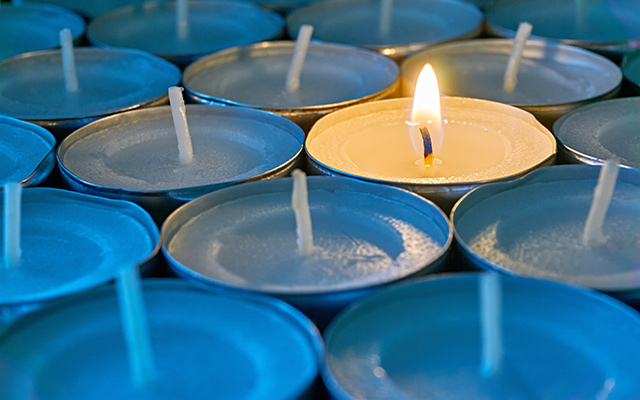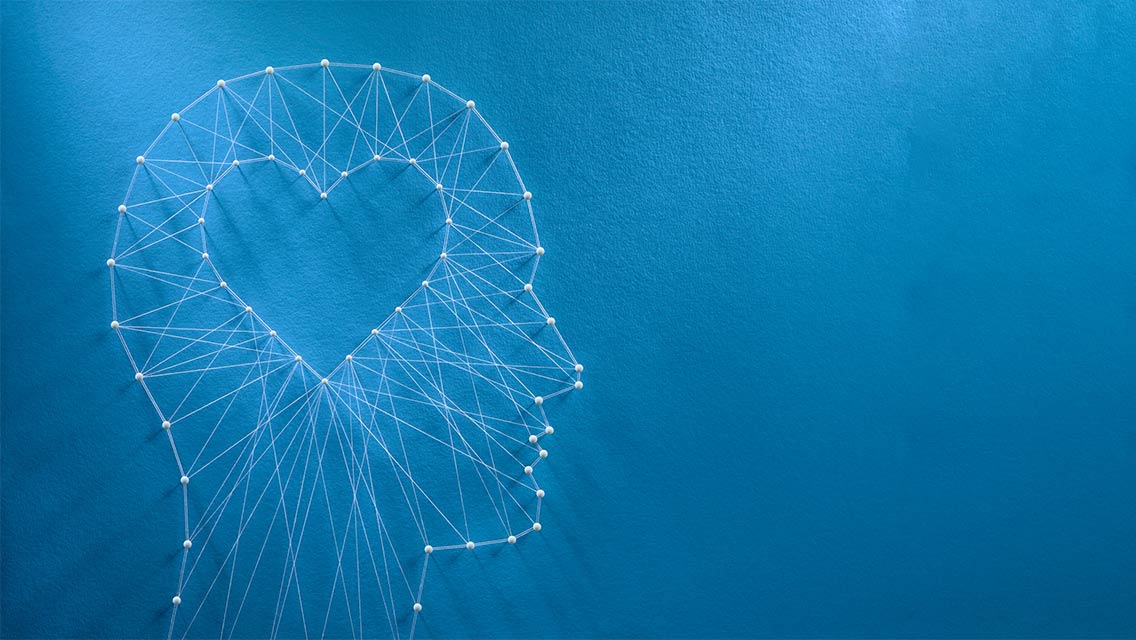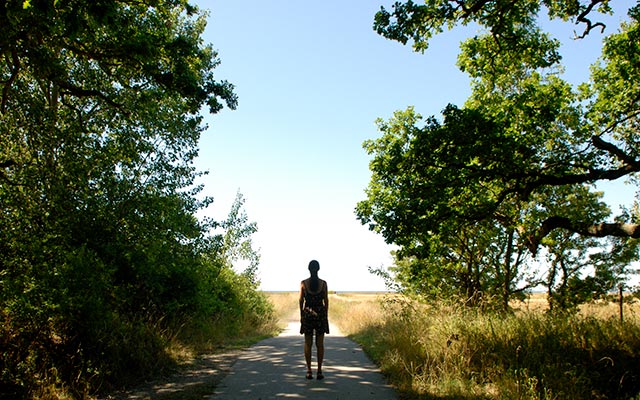David Kessler is a grief expert who knows of what he speaks. His mother died when he was a teen, and his grief became a springboard for a deeper interest in the experience of loss. As an adult he worked side by side with the legendary death-and-dying expert Elisabeth Kübler-Ross, coauthoring a book with her on the five stages of grief in 2004.
Then, after decades of writing, speaking, and counseling people in grief, Kessler lost his 21-year-old son, David. The profound loss propelled him to seek something beyond his previous understanding of the grieving process. This led him to identify a sixth stage of grief — meaning — which he writes about in his new book, Finding Meaning: The Sixth Stage of Grief.
“Meaning doesn’t require understanding,” he explains. “It’s not necessary to understand why someone died in order to find meaning.” Yet finding something meaningful in a loss can help us understand how to make sense of it, and to move on. Kessler believes that “meaning is the stage where healing resides.”
The book profiles a range of people who have made meaning from their grief. Some went on to start national organizations, like the founder of Mothers Against Drunk Driving. Another woman simply bought a set of postage stamps reminding her of her dead father, which allowed her to think of him each time she paid the electric bill.
In general, Kessler explains, the meaning we create from loss is entirely personal and specific. “For all of us, meaning is a reflection of the love we have for those we have lost.”
You can learn more about making meaning from grief in Kessler’s new book, which comes with a free companion class. (Find those details at www.grief.com or www.sixthstage.com.) Below he answers some questions about grief and meaning for EL.
Experience Life | How did you start working with people in grief?
David Kessler | I grew up having a normal childhood until I was 13, when my mother became ill and had to go to the hospital in the big city, where she passed away. Then, at the same time we were at that hospital, one of the first mass shootings in the United States happened right across the street. The shooting was devastating.
I didn’t know it then, but there was no one who could’ve helped me with my grief and shock. There were no resources. So, in a strange way, I often say I’ve become the person who could’ve helped me.
EL | Often serious trauma in childhood causes people to dissociate and numb out, but you’ve made a life’s work from grief. How did you manage that?
DK | When buffaloes sense a storm is coming, they run into the storm, minimizing their time in it. So perhaps that was my instinct. But I’ve also become that person that could’ve helped me, which is how I found meaning after those tragedies.
The shocking thing is that despite the fact that this is my career, those traumatic moments haven’t defined my life.
EL | That seems critical.
DK | I have a neighbor who said to me once, “I’d like to be friends, but I can’t talk about death all the time.” I said, “Believe it or not, in my friendships, I actually don’t talk about death unless something comes up.”
EL | Your neighbor’s comments seem to reflect a fear many of us share: If we talk about death at all, we will talk about nothing else. There’s no in-between. But it seems like your work is about that in-between.
DK | Right. It’s about grief, but it’s also about life.
EL | You worked closely with death-and-dying expert Elisabeth Kübler-Ross, who taught that grief occurs in five stages. What is important for people to understand about those stages?
DK | Elisabeth and I adapted her stages from dying to grief in our early book On Grief and Grieving, and literally on page one, we said they’re not linear. They’re not a map for grief.
Since that book, in 2004, they’ve become five easy steps to grief, which would appall Elisabeth. Since I’m the one still alive here, I felt the need to speak up and revisit them in this new book. And also to talk about how the stage of acceptance took on a finality that Elisabeth and I never meant. There’s no finality to grief.
EL | In your new book you suggest an additional stage to grief: finding meaning. Is this part of the grieving process, or kind of a bonus stage?
DK | Again, the stages are not linear or mutually exclusive. You can be wrestling with acceptance at the same time that you’re trying to find meaning. In fact, I often do that myself.
EL | So it’s not like you arrive at meaning and then — ta-da! — you’re done.
DK | Right. Grief is messy.
EL | Can we create meaning out of any kind of loss, not just losing someone through death?
DK | Yes. I also do retreats on breakups and divorce and betrayal; they’re all deaths. A breakup is the death of that relationship. A divorce is the death of a marriage. A job loss is the death of that work relationship. I think we look at those things and go, “Oh, my loss isn’t a physical death, so it doesn’t count,” and then we begin to minimize our own grief. We’re not organically feeling the grief. We’re judging the feelings. And then it’s hard to find the meaning in it.
EL | What happens when we treat losses and grief as meaningless or random?
DK | The problem is, when we feel like a loss has no larger value, the loss itself can become the purpose of our life. We can become dedicated to the loss, and it becomes our soul’s focus. Instead of being a feeling we have, the loss becomes who we are.
The word that people use is they feel “stuck.” They can’t have relationships anymore. “Stuck” is not a clinical term, but it is the term that people seem to use the most.
People can get angry when I mention meaning. I get it. I mean, I’m not saying that your loved one, who was murdered, has great meaning in their death. But meaning is what comes after their death. Meaning is what we do.
EL | And so let’s talk about that. Say my friend died . . .
DK | Is this a hypothetical, or is this real?
EL | Actually it’s both. I lost a friend to cancer at the end of September.
DK | The first thing to know is meaning may take months or years to develop. To me, September is the day before yesterday. Could you imagine saying to me three months after my mother had died . . . so, what’s the meaning? The meaning came decades later for me.
EL | She had young kids. Is it possible to help them find the meaning in their grief?
DK | Meaning is something you cannot discover for them. They will have to grow up and find their own meaning, and it may be uncomfortable for you to watch because you wanted them to have an amazing life with their mother, and that is not going to happen, and so it is going to be hard.
But I know that freedom is only found in reality. Death and loss just are what happens in the world. You know, we have the illusion that everyone’s going to have parents until they’re 80. I turned out not to have a TV-sitcom life. I turned out to have a real life, and in real life, mothers die, fathers die, divorces happen.
For those kids, you won’t have the answers, but your presence is what will make the difference.
EL | Can you talk about being a witness for grief?
DK | Everyone is so stressed about what to say. But literally, if you witness someone’s grief, you’re doing more than most. You don’t have to give that person 10 easy steps. You can just be with them.
Witnessing is about being a presence without an agenda. We want our grief seen. We want a life that has just ended to be witnessed. We want our own loss to be witnessed. If I had just given you three easy steps to feel better about your friend’s death and three easy things for her kids to do, you might have felt instructed, but you wouldn’t have felt witnessed.
It’s when you get a sense of my presence that you might feel some relief. That I am there witnessing it without trying to change it or show you the silver lining. We often try to show people the silver lining or give them the three easy tips. But then we’re treating grief like someone is broken, and they’re not broken. They’re in grief.
EL | Why are end-of-life rituals important?
DK | It’s a strange byproduct of our productive world that we multitask everything, and then death occurs, and people go, Oh, it wasn’t convenient to have a funeral. But every death that’s ever happened has been inconvenient. In fact, it’s designed to do that. Death and grief are there to make us stop.
We come from a long line of dead people. We know how to do this. So when are you supposed to do a ritual? When the death occurs. That is the archetype of how it’s supposed to work, and there’s a cost to us trying to manage it.
A ritual doesn’t have to be a formal funeral, either. It could be dinner out in their honor. It’s about marking their life and their death.
EL | What is complicated grief?
DK | All the feelings you experience in grief are normal feelings, but they shouldn’t stay. When feelings stay and we get stuck, that’s what we call complicated grief.
I think of grief as a river. Complicated grief is a branch in the river that slows the river down. We have to examine it and get it moving again.
EL | And witnesses, rituals, finding meaning . . . these help us to keep that grief moving?
DK | Yes. The grief needs to keep moving, and grief will take us to our healing.




This Post Has 0 Comments